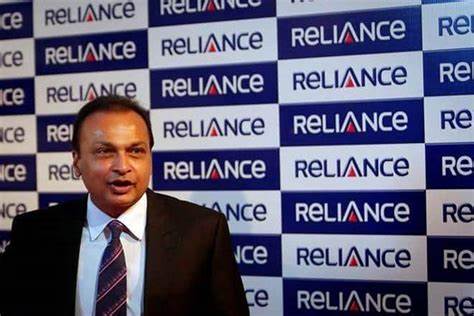SECI Bans Reliance Power for Three Years Over Alleged Fake Bank Guarantee Submission
The Solar Energy Corporation of India (SECI) has taken a major regulatory step by excluding Anil Ambani’s Reliance Power from taking part in any SECI contracts for a period of three years. According to reports, this restriction is the result of problems with bank guarantees that Reliance Power filed, which SECI found to be void. In India’s competitive electricity market, this development represents a significant setback for the company’s renewable energy initiatives.
SECI’s Decision and Its Underlying Causes:
SECI, which is in charge of developing renewable energy and solar energy projects throughout India, mostly depends on the strict financial conditions that bidders must meet. According to reports, Reliance Power was excluded after SECI discovered inconsistencies in the bank guarantees the business provided for a recent project. SECI claims that because these guarantees fell short of the required criteria, the regulatory agency took decisive action and prohibited the company from entering into any more contracts. This move is in line with SECI’s overarching strategy to guarantee responsibility and transparency in its interactions.
Although financial assurances are necessary to show a company’s dedication to its project responsibilities, noncompliance can lead to fines or, in extreme situations like this one, disqualification from future opportunities. In addition to emphasizing the value of rigorous adherence to regulatory procedures, SECI’s ruling also shows the serious dangers that businesses face when they do not comply.
Impact on Reliance Power and Its Business Prospects:
The restriction is a significant setback for Reliance Power, particularly since the business has been trying to increase its presence in India’s renewable energy market. In the midst of India’s transition to more environmentally friendly energy sources, Reliance electricity, which is well-known for its substantial work in thermal and renewable electricity, strategically prioritized solar projects. The company’s access to one of the most profitable renewable energy marketplaces in the nation is limited by this three-year restriction from SECI projects.
Reliance Power’s reputation in the larger energy industry as well as its portfolio of renewable energy sources are probably going to be impacted by the decision. Due to increased scrutiny from investors and regulatory agencies, the corporation may find it difficult to compete for future contracts. Retaining reputation and adhering to regulatory norms is essential in India’s highly competitive renewable energy sector. As a result, the suspension of operations puts Reliance Power in a vulnerable position where it will be crucial to win back the market’s and SECI’s trust.
The Future of SECI’s Regulatory Approach and India’s Renewable Energy Sector:
SECI’s dedication to maintaining high standards in its renewable energy projects is further shown by this case with Reliance Power. SECI has underlined the necessity of transparency, financial stability, and responsibility from participating enterprises as India speeds up its renewable energy targets to fulfill international commitments. Its strict oversight of financial assurances and compliance is likely to set a precedent, causing other businesses to be more cautious in order to prevent similar outcomes.
The ruling by SECI indicates a stricter regulatory environment for the larger renewable energy sector. By enforcing regulations against significant players, SECI shows that it is prepared to put integrity ahead of commercial relationships, which may promote greater ethical behavior in the industry. In order to get contracts and stay in business, Indian companies that specialize in renewable energy may now give even more importance to fulfilling SECI’s strict requirements.
This action suggests that the renewable energy industry may become more regulated and competitive, especially in light of India’s aggressive green energy goals. SECI’s position can be viewed as a proactive step to guarantee that India’s renewable infrastructure is established on a basis of accountability and dependability, thereby strengthening the country’s sustainable future vision.


Comments are closed.